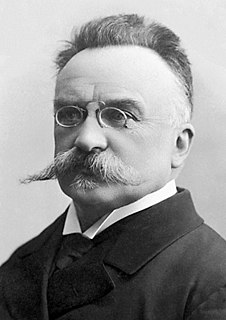A Quote by Charles Albert Gobat
It is true that I am not one of those who laugh at utopias. The utopia of today can become the reality of tomorrow. Utopias are conceived by optimistic logic which regards constant social and political progress as the ultimate goal of human endeavor; pessimism would plunge a hopeless mankind into a fresh cataclysm.
Related Quotes
Technical Utopias-flying, for example-have been achieved by the new science of nature.The human utopia...a united new humankind living in solidarity and peace, free from economic determination and from war and class struggle-can be achieved, provided we spend the same energy, intelligence, and enthusiasm on the realization of the human Utopia as we have spent on the realization of our technical Utopias.
There are two generic and invariable features that characterize utopias. One is the content: the authors of utopias paint what they consider to be ideal societies; translating this into the language of mathematics, we might say that utopias bear a + sign. The other feature, organically growing out of the content, is to be found in the form: a utopia is always static; it is always descriptive and has no, of almost no, plot dynamics.
The Revolutionary's Utopia, which in appearance represents a complete break with the past, is always modeled on some image of the Lost Paradise, of a legendary Golden Age... All utopias are fed from the source of mythology; the social engineers' blueprints are merely revised editions of the ancient text.
In the next few years the struggle will not be between utopia and reality, but between different utopias, each trying to impose itself on reality ... we can no longer hope to save everything, but ... we can at least try to save lives, so that some kind of future, if perhaps not the ideal one, will remain possible.
Utopias are presented for our inspection as a critique of the human state. If they are to be treated as anything but trivial exercises of the imagination. I suggest there is a simple test we can apply. We must forget the whole paraphernalia of social description, demonstration, expostulation, approbation, condemnation. We have to say to ourselves, How would I myself live in this proposed society? How long would it be before I went stark staring mad?
Do you begin to see, then, what kind of world we are creating? It is the exact opposite of the stupid hedonistic Utopias that the old reformers imagined. A world of fear and treachery and torment, a world of trampling and being trampled upon, a world which will grow not less but more merciless as it refines itself. Progress in our world will be progress toward more pain.



































